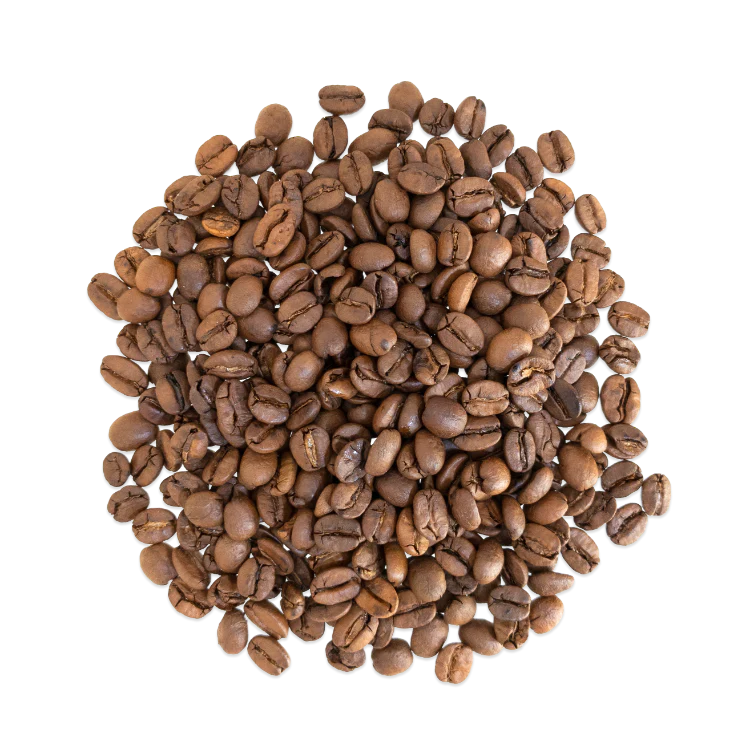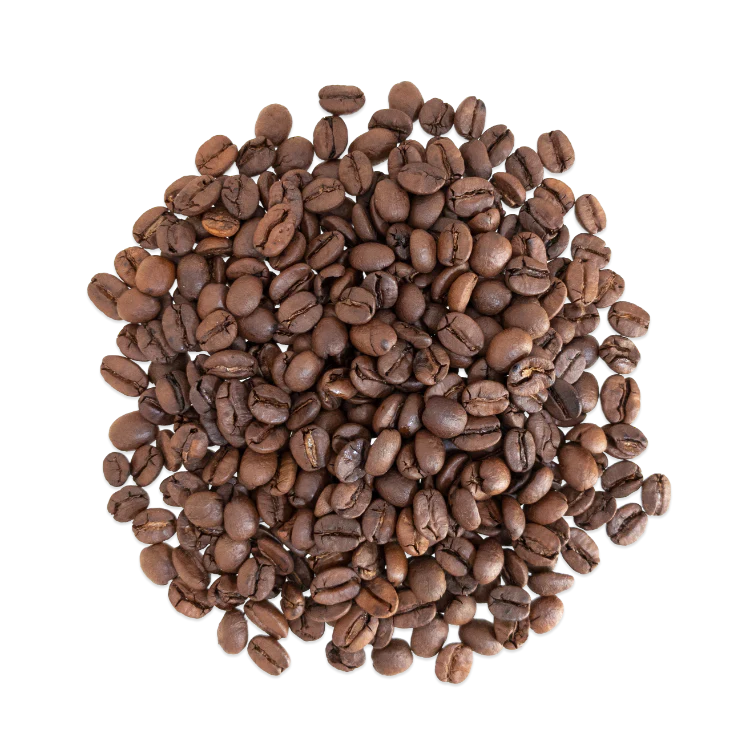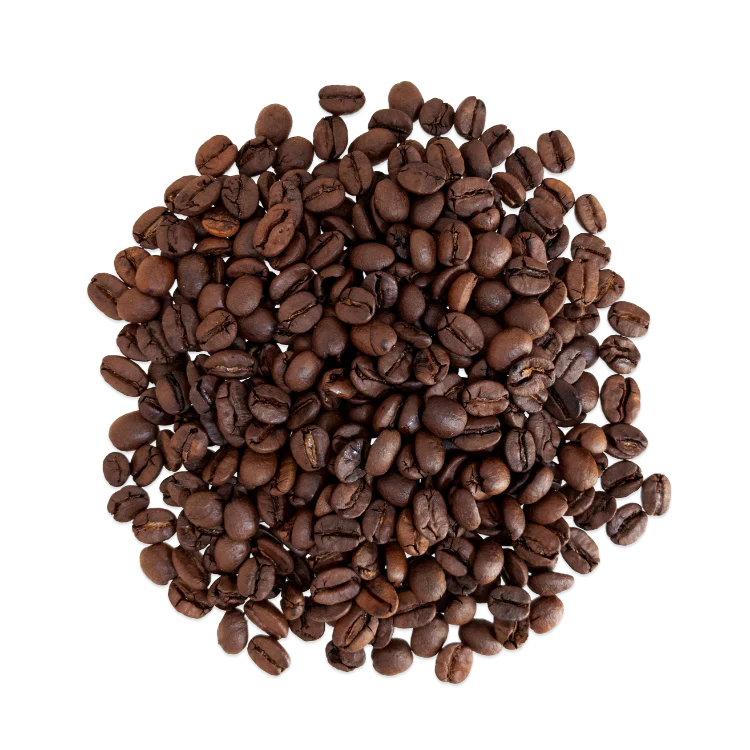Ever wonder why your coffee tastes bitter? It’s usually due to over-extraction - caused by fine grinds, brewing too long, or water that’s too hot. But don’t worry! Here are 6 simple fixes to make your coffee smoother:
- Adjust grind size: Use coarser grounds to avoid over-extraction.
- Shorten brew time: Stick to recommended brewing times (e.g., 3-4 minutes for French Press).
- Control water temperature: Brew between 195°F and 205°F.
- Fine-tune coffee-to-water ratio: Use 1 part coffee to 15-16 parts water.
- Add milk, cream, or salt: A pinch of salt or splash of milk can reduce bitterness.
- Clean your equipment: Regularly clean grinders and brewing tools to avoid stale residues.
For the best results, always use freshly roasted, high-quality beans. Small tweaks to your brewing process make a big difference. Let’s dive into these steps to perfect your cup!
The Coffee Tastes Bitter? (How to Fix Bitter Coffee Issues)
What Makes Coffee Taste Bitter?
Bitterness in coffee often points to a problem with your brewing process. Pinpointing the cause is the first step to brewing a better cup at home.
How Over-Extraction Leads to Bitterness
Over-extraction happens when water draws out both the pleasant and harsh compounds from coffee grounds. This tends to occur when:
- Your coffee grounds are too fine
- Brewing time is extended
- There's excessive contact between water and the grounds
Why Water Temperature Matters
The temperature of your water plays a big role in flavor. Water that's too hot can scorch coffee grounds, releasing bitter compounds. Aim for a brewing temperature between 195°F and 205°F, and keep the temperature steady throughout the process for the best results.
Stale or Poor-Quality Beans and Their Impact
Using stale or low-grade beans can make your coffee taste bitter, no matter how carefully you brew. Roast level also influences bitterness - darker roasts naturally have stronger bitter notes, while lighter roasts are usually less bitter and more acidic.
| Time After Roasting | Bean Quality | Impact on Taste |
|---|---|---|
| 1-2 weeks | Optimal freshness | Rich, balanced flavor |
| 3-4 weeks | Starting to decline | Less aromatic, slight bitterness |
| Beyond 4 weeks | Stale | Bitter, flat flavor |
To maintain bean quality, store them in an airtight container, away from heat, light, and moisture [1][2].
With these causes of bitterness in mind, let's look at six practical ways to fix it.
sbb-itb-5ee56a4
6 Simple Ways to Fix Bitter Coffee
These tips address common causes of bitterness, helping you enjoy a smoother, more enjoyable cup.
1. Adjust Your Grind Size
The grind size can make or break your coffee. If it's too fine, you'll expose more surface area to water, which can lead to over-extraction and a bitter taste. For methods like French Press or Pour Over, try switching to a coarser grind to improve the flavor.
2. Shorten Brewing Time
Brewing too long often results in over-extraction, which brings out bitter flavors. Stick to the recommended times for your brewing method:
| Brewing Method | Ideal Time |
|---|---|
| Espresso | 20-30 seconds |
| French Press | 3-4 minutes |
| Pour Over | 3-4 minutes |
3. Check Your Water Temperature
Water that's too hot can scorch your coffee, leading to bitterness. Aim for a brewing temperature between 195°F and 205°F (90-95°C). A thermometer or temperature-controlled kettle can help you hit this range.
4. Fine-Tune Your Coffee-to-Water Ratio
The wrong ratio can throw off your brew. Use a digital scale to measure a ratio of 1 part coffee to 15 or 16 parts water. This ensures a balanced cup without overwhelming bitterness.
5. Add Milk, Cream, or a Pinch of Salt
Sometimes, small additions can make a big difference. Beannbean Coffee suggests:
"Adding a small amount of salt to your coffee helps reduce the bitterness" [1]
Try a pinch of salt (about 1/8 teaspoon per cup) or a splash of milk or cream to mellow out the flavor.
6. Keep Your Coffee Gear Clean
Old coffee residue can ruin the taste of your brew. Rinse filters and brewing equipment after each use, clean grinders weekly, and descale machines every 3-4 months. This keeps unwanted bitterness at bay.
Making these simple changes can transform your coffee experience, but don't overlook the importance of choosing quality beans for the best flavor.
How to Choose Coffee Beans for Better Flavor
The beans you choose play a big role in the taste of your coffee. Picking the right ones can help you avoid bitterness and improve the overall flavor.
Buy Freshly Roasted Coffee
Freshness matters. Stale beans often lead to bitter coffee because their natural compounds break down over time. Here's how to keep your beans fresh:
- Look for a roast date and aim for beans roasted within the last two weeks.
- Purchase from small-batch roasters for better quality control.
- Store beans in airtight containers, away from heat, light, and moisture.
Pick the Right Roast Level
The roast level has a direct impact on bitterness and flavor. Here's a quick breakdown:
| Roast Level | Bitterness Level | Flavor Characteristics |
|---|---|---|
| Light | Low | Bright, acidic, and complex flavors |
| Medium | Moderate | Smooth, balanced, and versatile |
| Dark | Varies | Bold and rich, but smooth when roasted properly |
If you’re sensitive to bitterness, go for lighter roasts. They’re roasted for less time, which retains more of the bean’s natural flavors and reduces bitter compounds. However, well-roasted dark beans can still provide bold, rich flavors without being overly bitter.
Other factors to think about when choosing beans:
- Bean origin: Different regions produce distinct flavor profiles.
- Processing method: This influences the natural sweetness and acidity of the coffee.
Conclusion
You don’t have to settle for bitter coffee every day. By tweaking your brewing process, you can drastically improve the flavor of your cup. The secret lies in finding the right balance between grind size and brewing time for your setup.
Once you’ve fine-tuned your brewing process, turn your attention to the beans. Fresh, high-quality beans play a huge role in reducing bitterness. Seek out roasters that offer smooth, well-balanced blends to help you avoid harsh flavors.
Brewing coffee is part science, part art. It might take a bit of trial and error to get it just right. Adjust one variable at a time - like grind size or brewing time - and take note of the results. With these steps and great beans, you’ll be brewing smooth, delicious coffee at home in no time.
"Baristas emphasize the importance of brewing adjustments, quality beans, and clean equipment to improve flavor." [3]









